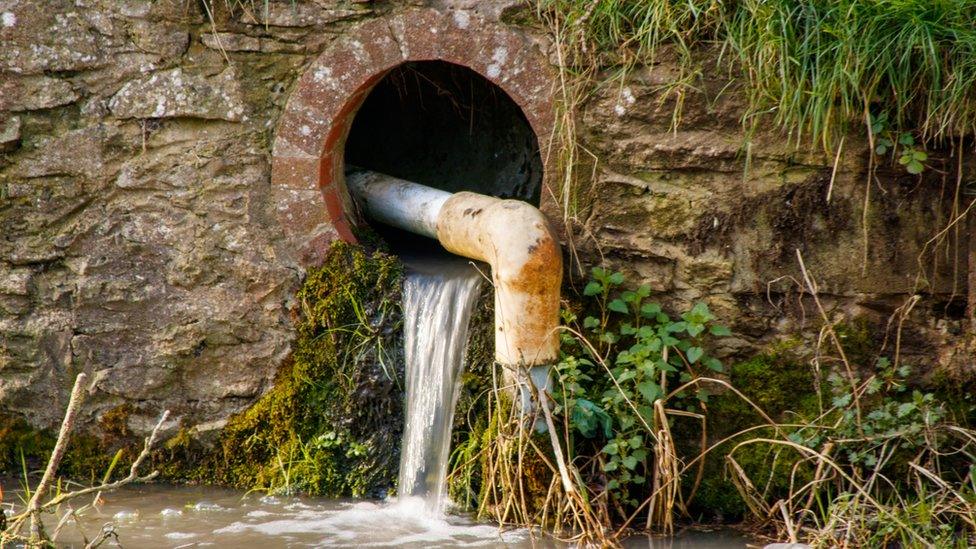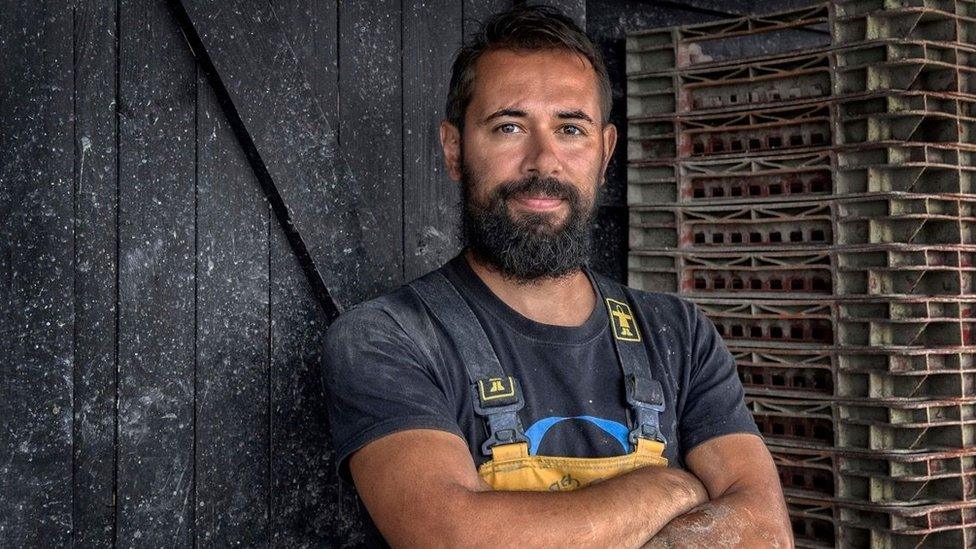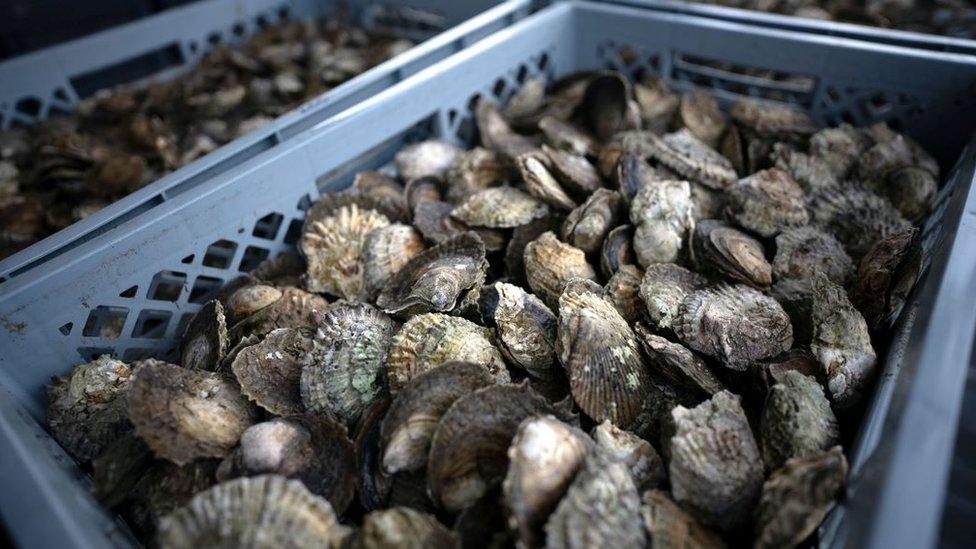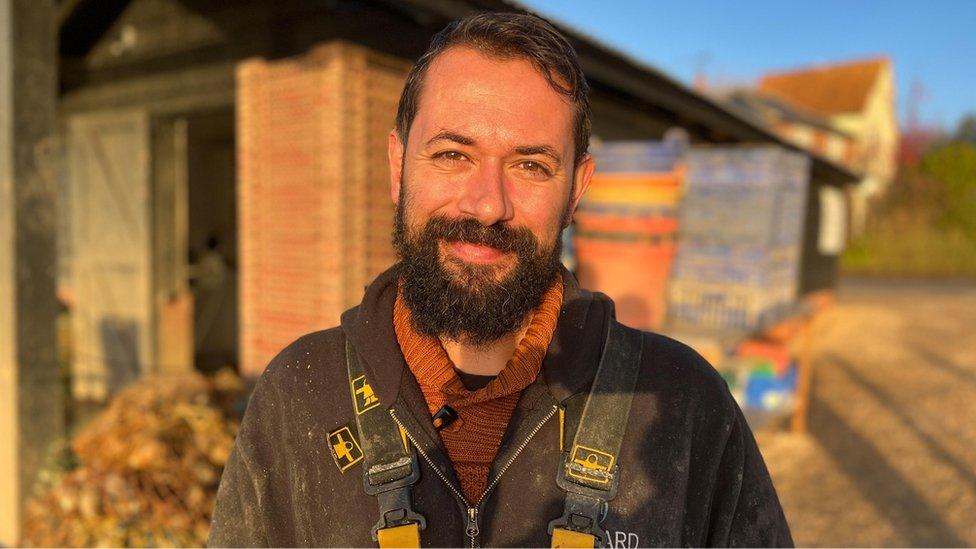Mersea oyster farmer hopes legal action will reverse sewage rules
- Published

The legal challenge aimed to reverse the government's decision to continue allowing water firms to discharge raw sewage into waterways through storm overflows until 2050
An oyster farmer who has taken the government to court over the discharge of sewage by water firms said he hoped to gain some concessions to the rules.
Tom Haward, of Essex-based Richard Haward's Oysters, said the "relentless dumping of sewage into our seas" threatened oysters' breeding waters.
Water firms have been given a deadline of 2050 to stop sewage discharges.
The legal challenge aimed to force the government to bring the deadline forward and introduce tougher targets.
A two-day High Court hearing ended on Thursday, with the judge expected to come back with his decision in writing at a later date.
The action, brought by Mersea Island-based Richard Haward's Oysters, the Marine Conservation Society, and surfer and activist Hugo Tagholm, was supported by the Good Law Project, a not-for-profit legal company.

Oyster producer, Tom Haward, said his family had decided to get involved in the legal action to protect the UK's waters for future generations
Mr Haward said: "Mersea produces the best oysters: the water quality is fantastic, our oysters are doing brilliantly, we're not being impacted by sewage discharges like other parts of the UK are.
"But there are shellfish harvesters who've been really impacted by this [sewage]."
He said he decided to get involved with the court case for future generations.
"My daughter is two, and if she wants to be generation nine of the Hawards, there's got to be safeguards there for her to be able to do that," he said.
"It's about protecting her future; it's about protecting the UK's future."

Tom Haward's Oysters have been farming oysters in the estuaries and creeks around Mersea Island since the 1700s
The family business, which has been cultivating oysters since the 1700s, has 14 acres of oyster layings in the creeks surrounding West Mersea - on the island near Colchester.
Mr Haward, who has called for water companies to invest more in their infrastructure, was hopeful of a positive outcome from the court challenge.
"I'd like to think we'll see something that has a major positive impact. Even if it's just shortening time frames," he said.
"Because at the moment government is talking about year 2050 before something significant happens, with storm overflows alone.
"If that just brings it forward to a much shorter timeframe, that for me is a win.
"The big win would be for the water companies to be finally held to account for what they do."
A ruling against the Department for Environment, Food & Rural Affairs (Defra) could set a landmark precedent, according to the Local Democracy Reporting Service.
It would allow others to use an ancient English legal principle called the Public Trust Doctrine, to compel those in power to protect the natural environment.
Defra has been asked for comment.

Follow East of England news on Facebook, external, Instagram, external and Twitter, external. Got a story? Email eastofenglandnews@bbc.co.uk or WhatsApp us on 0800 169 1830
- Published4 July 2023
